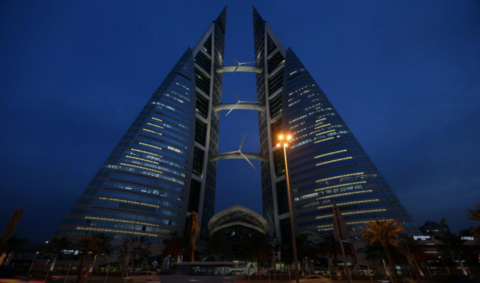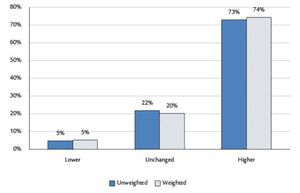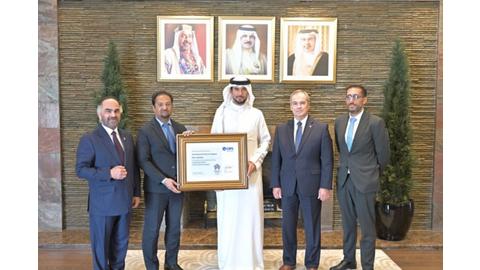Experts ‘optimistic’ about Bahrain economic growth

MANAMA: A new survey has revealed that experts are ‘optimistic’ about the level of economic activity in the next six months – reflecting Bahrain’s positive turnaround amidst the pandemic.
The Bahrain Economists Society (BES) released its Economy Experts Survey featuring 40 specialists (majority citizens) based in the country who shared their views about latest economic developments and future challenges.
They were asked to share their views on business confidence and the thorny subject of taxing foreign transfers, as part of the survey conducted last month.
“Overall, the experts are optimistic about the level of economic activity in the next six months,” the survey revealed.
“Almost 75 per cent expect an increase (level of economic activity), and only 5pc expect a decrease, with about 20pc expecting no change.”

Graphs indicating feedback from the respondents with close to 75pc expect an increase in the level of economic activity in Bahrain
Furthermore, the survey states the experts were ‘close to having a consensus’ on the issues.
The respondents added they feel that the economic boost from the continuing Covid-19 recovery will ‘play a more positive role’ than will the ‘negative effect of raising Value Added Tax (VAT)’.
“However, it remains to be seen if this optimism will continue when the economy returns to a natural state, and social distancing restrictions have been removed for an extended period of time,” stated the findings.
Bahrain raised BD250 million from VAT at 5pc in 2019, but this declined to an estimated BD220m in 2020 due the pandemic.
The government is yet to refer a draft amended law to the legislative authority on the VAT hike from the current 5pc to 10pc.
If cleared by the legislature, the amended tax on goods and services would come into effect on January 1, 2022.
Parliament’s first deputy speaker Abdulnabi Salman in April this year urged for taxes to be levied on foreign remittances, worth hundreds of millions, being transferred by expatriate workers in Bahrain, annually.
Survey respondents were in a majority for supporting the measure but voiced concerns over the possible repercussions. They have warned that a proposed tax on remittances, as an alternative to the hike in VAT, could affect the country’s investment climate.
“This poses a risk to Bahrain’s status as a financial hub, and may cause capital outflows if investors perceive this is the start of a programme of intrusive capital controls,” added the survey.
Overall, 65pc of the respondents ‘agree’ or ‘strongly agree’ (on a tax on foreign remittance), and only 28pc responding ‘disagree’ or ‘strongly disagree’, and the rest were uncertain.
“Those proposing a tax on foreign transfers as an alternative to an increase in VAT should be cautious because the panel generally perceive such a tax to be a threat to investment in the Bahrain economy,” the experts concluded.
The experts did not have consensus on the issue, indicating that any policy decision would benefit greatly from a thorough scientific study.
BES president Dr Omar Al Ubaydli, who compiled the survey, told the GDN that there is a feeling among a large part of the population that by taxing foreign transfers ‘the burden of the tax’ can be transferred from citizens to expatriates.
“However, the impact of taxes is rarely straightforward, and this survey of experts confirms the real fear that such a tax could backfire and harm the very people it seeks to help. The survey also underlines the need for further rigorous research.”
The Bahrain Economists Society was founded in 1992 with the aim of developing a wider understanding and awareness of economics as a prominent field of knowledge.
The GDN reported that Finance and National Economy Minister Shaikh Salman bin Khalifa Al Khalifa during a session at the Future Investment Initiative Forum in Riyadh that ended on Thursday said that Bahrain’s priority remains to use its policy to turbo-charge economic growth.
Key steps taken by the government over the last 18 months include a $12 billion stimulus package designed to protect jobs and support business sectors affected by the health crisis.
These were instrumental in Bahrain’s economy growing 5.7pc in the second quarter of the year, following a contraction of 5.8pc in 2020.
Non-oil sectors grew 12.8pc during the second quarter on the back of a recovery in the transport and hospitality sectors.
sandy@gdn.com.bh


